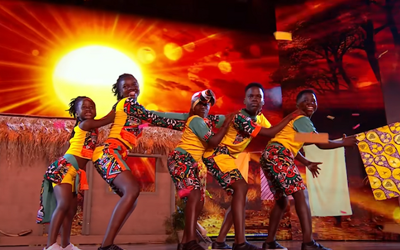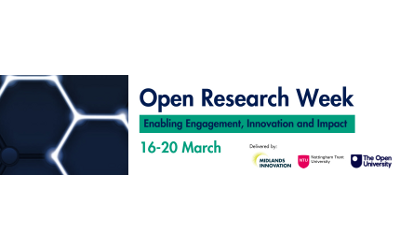Uganda’s Ghetto Kids make Britain’s Got Talent history – here’s the reality of ‘orphanages’ around the world

A group of talented young dancers from Uganda warmed hearts around the world after earning the coveted “golden buzzer” on Britain’s Got Talent. The Ghetto Kids are a dance troupe of children between the ages of five and 13 growing up in a child care institution in Uganda. Putting on electrifying performances that showed off their personalities and impressive choreography, the children made it to the final.
The attention on Ghetto Kids presents a chance to acknowledge the lived realities of approximately 5.4 million children worldwide growing up in institutional care. For many of these children, there are deeply troubling reasons for their entry into care, and many have challenging childhoods away from their families.
The Ugandan Care Leavers Association has released a balanced yet strong critique of the promotion of Ghetto Kids on Britain’s Got Talent. The campaigners recognise that the public support of Ghetto Kids is well intentioned. But they highlight, through sharing their own experiences, how detrimental the lifelong impact of institutional care can be.
Institutional care refers to large numbers of children accommodated in one home and cared for by a relatively small number of staff. They differ from smaller scale residential children’s homes that often care for around five to ten children, offer more family-like care and are embedded in the community. The Ghetto Kids home looks after over 30 children, and the founder, Daouda Kavuma, has stated on the show that he has ambitions to grow this number.
Globally, it is estimated that four out of five children living in institutional settings actually have family. Save the Children’s research found that 98% of children in institutional care in central and eastern Europe, 94% in Indonesia, and 90% in Ghana have at least one living parent.
Despite this, many organisations that care for these children still refer to themselves as orphanages. The word evokes stories of caring for a relinquished child. This is a powerful narrative for organisations in low income countries to increase charitable donations.
Studies have revealed that numerous children are victims of exploitation and trafficking into institutions. In some cases, orphanage owners recruit or traffic children to establish “voluntourism” programs. They can profit from overseas volunteers who pay to spend time with “orphans”.
The orphan myth
In my research in Thailand parents told my colleagues and I that they were dissuaded from visiting their children in the homes. This was to avoid the parents encountering donors who believed the children were orphans. Researchers describe this false narrative as the “orphan myth”.
There is no evidence that the Ghetto Kids home engages in these exploitative practices, but Britain’s Got Talent risks perpetuating this myth in how it frames their story. Press coverage, and the children themselves, refer to the home as an orphanage. However, Kavuma Dauda, the founder of the troupe, has only said that “some” of the children are orphans. (Britain’s Got Talent did not respond to The Conversation’s request for comment.)
In many countries, children are rarely placed into care due to orphanhood or concerns about abuse. More often, the driver is poverty and resources. In Thailand we found that parents often placed their children in care to ensure access to basic needs, food, healthcare and education.
For a family living in poverty, the experiences of children from organisations like Ghetto Kids – attending university, finding career success or international dance fame – might present an opportunity to give their children a better life. However, these opportunities can come at a significant cost: a childhood apart from their families.
The harms of institutional care
Decades of research has highlighted the negative outcomes for children in institutional forms of care around the world. The staff-to-child ratio in institutions often affects the staff’s ability to nurture the children. This is often compounded by the staff members being on shift patterns that result in inconsistent care. Children in some settings can experience an estimated 50 to 100 different caregivers in the space of a year.
A systematic review of the literature concluded that institutional care has a negative impact on children’s attachment. Other studies have reported lower IQ scores and impaired physical growth in institutionalised children compared to those in family based care. This has led researchers to argue that institutional care can be considered a form of child maltreatment, and described this as a form of structural neglect.
These findings were reinforced in a systematic literature review by the Lancet Commission in 2020, which unequivocally concluded that institutionalised children in alternative care experience impairment in their physical, social, cognitive and emotional development.
Care reform
In their statement on Ghetto Kids, the Ugandan Care Leavers association called for an end to the promotion of institutional care without considering alternatives that enable children to stay connected to their families and communities.
This alternative lies in governments developing child welfare policies and practices informed by the UN guidelines on alternative care. These state children should only be placed away from their families when necessary and that alternatives to institutions with large numbers of children should be developed.
As a result, countries including Kenya and Rwanda have started to reform national care to support children to remain in their families, or be placed into small scale children’s homes or foster care placements if that’s not possible.
This reform is also happening in Uganda, where activists from the care leavers association and other nongovernmental organisations are working with the government to ensure that children’s rights to family life, enshrined in the UN convention on the rights of the child and the African charter on the rights and welfare of the child, are met.
Justin Rogers, Lecturer in Social Work, The Open University
This article is republished from The Conversation under a Creative Commons license. Read the original article.
Contact our news team
For all out of hours enquiries, please telephone +44 (0)7901 515891
Contact detailsNews & articles

Open Research Week to spotlight innovation in 2026
Open Research Week will return from 16–20 March 2026, uniting Open University researchers and partners to explore how open practices drive engagement, innovation and societal benefit.